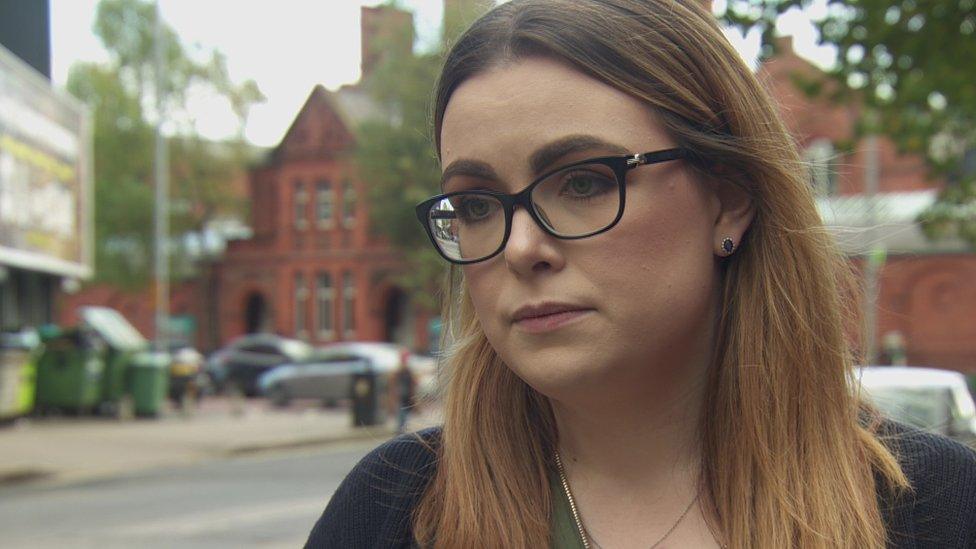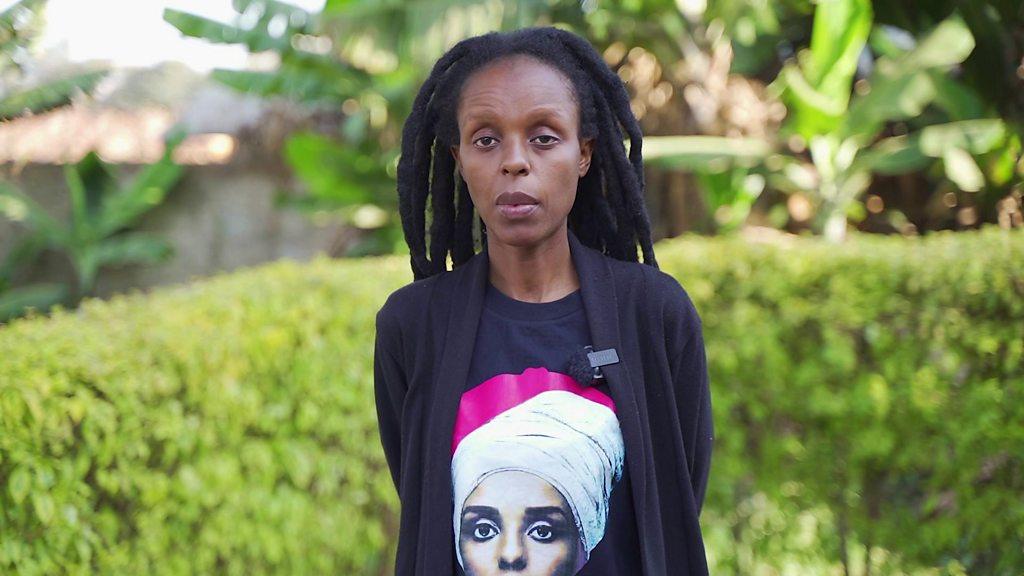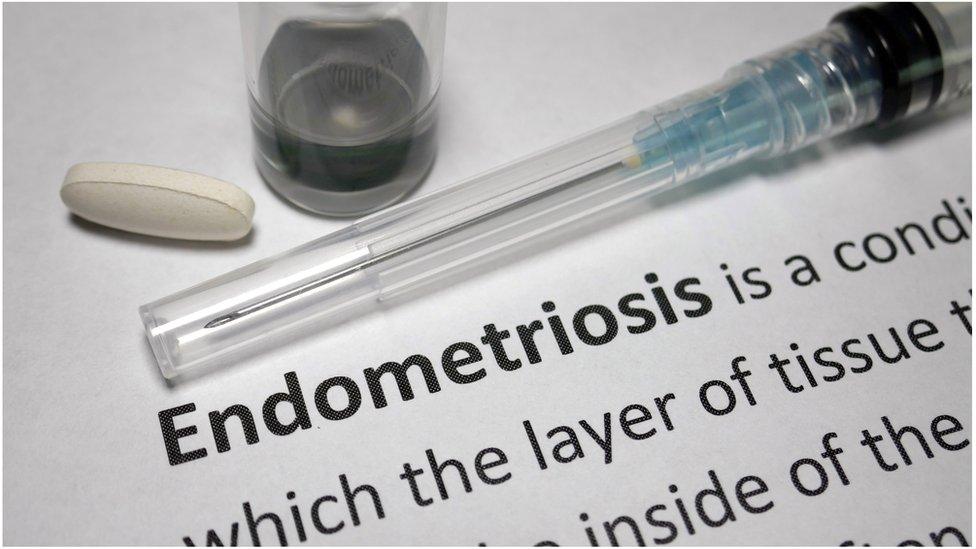Endometriosis surgery delay 'caused irreversible damage'
- Published
Claire Nicholls said medical professionals did not seem to believe how much pain she was in
An endometriosis sufferer has said her reproductive organs are so damaged by a three-year delay for surgery, it has affected her ability to have children.
Claire Nicholls, 29, has been in pain for years with the condition - which involves tissue similar to the lining of the womb growing elsewhere.
Northern Ireland has the longest gynaecological waiting lists in the UK, according to a professional body.
It is calling for two regional endometriosis centres.
The Department of Health said it could not comment on individual cases but added that specialist centres would require investment.
The report from the Royal College of Obstetricians and Gynaecologists found 36,900 women in Northern Ireland are on a gynaecology waiting list - a 42% increase since the start of the pandemic.
Dr Hans Nagar, a consultant gynaecological surgeon at the Belfast Health and Social Care Trust, said women need to be seen much quicker.
He also said regional centres would house specialists under one roof, which would address the hospital waiting lists.
'In my head'
Ms Nicholls said she was passed from "pillar to post" and for 10 years, medical professionals did not seem to believe how much pain she was actually in.
She has stage four endometriosis, which is the most severe and widespread.
"The pain can be excruciating, at times I can't get out of bed and I have also had to attend the emergency department," she said.
After opting to go private, her surgeon said he was unable to see many of her organs due to the amount of scarred tissue caused by the delay in surgery.
"He told me the scarred tissue and adhesions were all around my organs... they couldn't remove it all as it could have damaged other organs including my bladder - it was just too severe," she said.

Hayley Scott, from Endo Warriors NI, said sufferers have had "enough of being fobbed off"
One of her fallopian tubes is irreversibly damaged which she has been told will have a "huge impact" on her ability to have children.
Ms Nicholls, who owns a beauty business, says she is angry and hurt, and she knows a lot of women in a similar position because they were also not listened to.
"I was told the pain was in my head and that it was normal to experience this amount of pain - pain that was there almost every day and not just around my period," she said.

Endometriosis surgery waiting lists
BBC News NI can reveal that 323 women are on endometriosis surgical waiting lists.
Western Trust: 28 patients are waiting to have surgery - the longest wait is about three years
Southern Trust: 37 patients - the longest wait is about three years
Belfast Trust: 167 patients - the longest wait is four years
Northern Trust: 91 patients - the longest wait is more than three and a half years
South Eastern Trust: 88 patients

Ms Nicholls is on hormone replacement therapy to treat the pain and to try to protect her reproductive organs.
This means she has been put into premature menopause.
"To think I had to be induced into a state of menopause in order to help me is just shocking - I was told if I wanted to protect my fertility options I had no other option," she said.

What is endometriosis?
It is where tissue like that in the lining of the womb grows elsewhere in the body - often around the reproductive organs, bowel and bladder
Like the womb lining, the tissue builds up and bleeds every month, but with no way to escape the body, the blood is trapped, leading to inflammation, pain and formation of scar tissue
For some women there are no symptoms, but for others it is debilitating and can cause • chronic pelvic pain, painful sex, painful bowel and bladder movements, fatigue and difficulties getting pregnant, external
There is no cure but treatments can reduce symptoms
They include hormone treatment, pain relief and surgery - including hysterectomy

Endo Warriors NI said women who had the disease have had "enough of being fobbed off" and too many are being "permanently damaged".
Hayley Scott, from the support group, said they were not being listened to by either medics or politicians, and the usual reply was that there was no budget.
The report from the Royal College - Left for Too Long - makes a number of recommendations including a shift in the way gynaecology is prioritised as a speciality across the health service.
It says elective recovery must address the unequal growth of gynaecology waiting lists compared to other specialities and there should be a concentrated effort in each region to end the postcode lottery for gynaecology care.
It also found waiting lists for elective gynaecology might result in fewer incidental diagnoses of suspected gynaecological cancers.
In a statement, the Department of Health said its "direction of travel is to develop specialist endometriosis care" but it required investment.
"Full accreditation requires regular theatre sessions which requires investment in specialist nursing staff and dedicated surgical resources," it said.
"We are unable to give confirmation of details regarding location or timescales at this time."
Related topics
- Published30 March 2022

- Published9 March 2021

- Published6 October 2019

- Published7 October 2019
